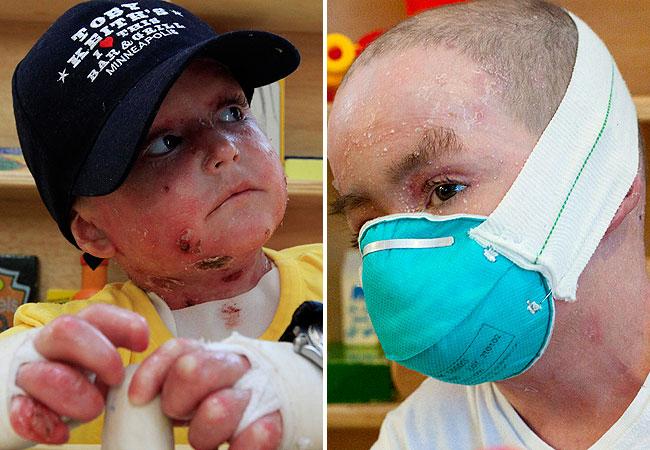Early on, the story says that the measure "bans embryonic stem cell research into disease prevention as part of a ban on human cloning." Well, no. It bans human cloning, which (if successful) produces cloned embryos that theoretically could be used for embryonic stem cell research. But it doesn't ban embryonic stem cell research. None of the current research in Minnesota, embryonic or otherwise, would be affected.
The author later writes:
Perhaps the most controversial item in the otherwise financially focused bill was a recent addition of language from a separate bill that purported to ban human cloning, making any effort to duplicate a human being, living or deceased, a felony.First, the bill would make human cloning a misdemeanor, not a felony.
There's no question the bill does that, but no one, neither Democrats nor reputable research institutions, say they disagree with that part, known as "reproductive cloning."
University of Minnesota officials say they support a ban on reproductive cloning. But the bill as written also would halt therapeutic cloning techniques that could produce promising new treatments from embryonic stem cells, said U spokeswoman Mary Koppel.
Second, the author is confused about human cloning. He seems to think that "duplicating a human being" is "reproductive cloning," but "therapeutic cloning" is something different.
What the legislation bans is the cloning process known as somatic cell nuclear transfer (SCNT), which results in a new human organism who is genetically virtually identical to the donor of genetic material. SCNT is used in both "reproductive" and "therapeutic" cloning. The difference is whether the cloned embryo is allowed to develop toward maturity (reproductive cloning) or is killed in order to derive stem cells for research (therapeutic cloning). The bill under debate simply bans human cloning (SCNT), period.
Third, the bill could not possibly "halt therapeutic cloning techniques" because no such research is currently happening in Minnesota. Both the University of Minnesota and Mayo Clinic have said that they are not involved in therapeutic cloning. (If cloning could produce "promising new treatments," why aren't they involved? I have written about cloning's therapeutic potential, or lack thereof, here and here.)
The story continues:
The federal government currently provides funding for embryonic stem cell research based on just a few stem cell lines; other states and private groups, meanwhile, are funding research based on other embryonic stem cells. The proposed legislation would prevent the university — or anyone else — from participating in any of these research projects, Koppel said.If Koppel said that, she was either lying or terribly misinformed. The bill would only prevent participation in any research projects involving human cloning (SCNT). None of the current University of Minnesota research projects involve SCNT, and none of the federally funded embryonic stem cell research projects involve SCNT.
The U has scheduled an event Thursday near the Capitol in which patients with Type I diabetes, Duchenne's muscular dystrophy and a lethal skin condition called epidermolysis bullosa will speak out against the legislation.
 All of the patients at the event who have received stem cell treatments were treated with uncontroversial adult stem cells, the only kind that has successfully treated patients, and the kind that is championed by MCCL and others who hold the pro-life view. The bill would not affect that research at all. The example of these patients is not relevant to the actual bill under consideration.
All of the patients at the event who have received stem cell treatments were treated with uncontroversial adult stem cells, the only kind that has successfully treated patients, and the kind that is championed by MCCL and others who hold the pro-life view. The bill would not affect that research at all. The example of these patients is not relevant to the actual bill under consideration.In an older post I included this photo (to the right) of a young patient successfully treated at the University of Minnesota using adult stem cells. His story highlights the potential of adult stem cells to help people. It does not tell us anything about human cloning, or about embryonic stem cell research, which have had no therapeutic success.